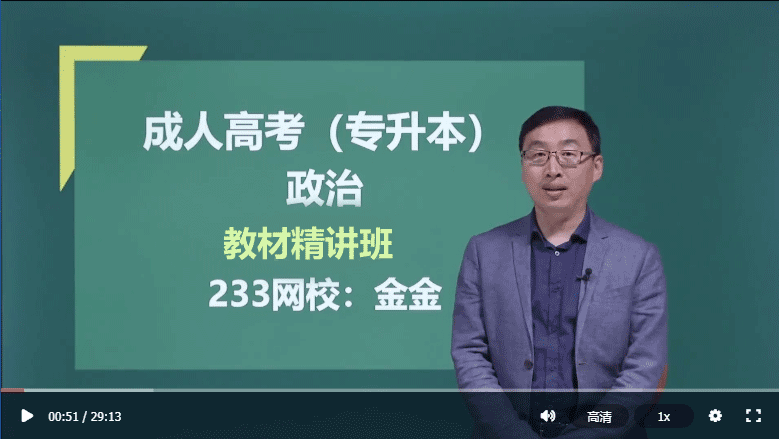цшщЋшЕЗчЙшБшЏшЏцГхНчКГфИчЛфЙ яМхфЙяМ
х хЎЙ ц шІ
-EDхшЏхГцфЛЌхЙГхИИцшЏДчхЈшЏшПхЛхшЏухЎцфИЄчЇхНЂхМяМшЇххЈшЏхНЂхМхфИшЇххЈшЏхНЂхМушЇххЈшЏхНЂхМчБшЇххЈшЏяМ-EDццяМфИшЇххЈшЏцх ЖчЙцЎч-EDхшЏухЈшЏцГхшНфИяМхЎхЈхЅхфИцшНцПц чцххКцЌфИ-INGхшЏчИхяМхЏфЛЅфНшЁЈшЏяМхЎшЏяМчЖшЏяМфЙхЏфЛЅчЈхЈхЄхчЛцфИяМфИчЎЁхЎфНфЛфЙцхяМх ЖхКцЌчхЋфЙцЏтшЂЋхЈтчу-EDхшЏхЈшЏцГхшНхцфЙфИфИ-INGхшЏцфИхЎчхКхЋу
ш -EDхшЏччЈцГ
фИу-EDхшЏфНшЁЈшЏ
The glass is broken. / He was amused. / She seemed quite disappointed. / He is greatly discouraged by her refusal of inviting her to the party. / The window remains locked.
хЗВчЛхНЂхЎЙшЏхфКч-EDхшЏхЄЇщНфНшЁЈшЏяМхИИшЇчцяМaccomplishedяМ amazedяМ amusedяМ astonishedяМ brokenяМ closedяМ completedяМ complicatedяМ confusedяМ crowdedяМ desertedяМ devotedяМ disappointedяМ discouragedяМ dressedяМ drunkяМ exhaustedяМ excitedяМ experiencedяМ faddedяМ fascinatedяМ frightenedяМ hurtяМ inexperiencedяМ interestedяМ knownяМ learnedяМ lostяМ marriedяМ pleasedяМ puzzledяМ qualifiedяМ satisfiedяМ surprisedяМ tiredяМ unpreparedяМ unqualifiedяМ unkownяМ upsetяМ worriedяМ woundedчу
фКуфНхЎшЏч-EDхшЏ
-EDхшЏхЏфЛЅфНхчНЎхЎшЏфЙхЏфЛЅфНхчНЎхЎшЏяМфНхчНЎхЎшЏцЖчИхНфКфИфИЊхЎшЏфЛхЅ
1яМ Commercial banks make most of their income from interest on loans and investments in stocks and bonds.
яМЛAяМН earn яМЛBяМН earned яМЛCяМН to earnяМЛDяМН was earned
2яМ On his return from his collegeяМ he found the house .
яМЛAяМН desertingяМЛBяМН desertedяМЛCяМН desertяМЛDяМН to be deserted
3яМ The age яМЛAяМН of a geological sample can be estimated яМЛBяМН from the ratio of radioactive to nonradioactive carbon present яМЛCяМН in the object is examined яМЛDяМН .
фИучЈфНчЖшЏч-EDхшЏ
шПц Зч-EDхшЏщхИИцЅшЊхчЉхЈшЏу-EDхшЏчЈфНчЖшЏцЖяМшЗ-INGхшЏфНчЖшЏцЖфИц ЗяМфПЎщЅАфИЛхЅчшАшЏхЈшЏяМцфЙфИчИхНфКчЖшЏфЛхЅяМшЁЈчЄКцЖщДяМцЁфЛЖяМхх яМфМДщчЖхЕчу-EDхшЏчЛцфНчЖшЏяМхшОЙхОхОхЏфЛЅх whenяМwhileяМifяМas ifяМthough.шПцЖяМцфЛЌхЏфЛЅц-EDхшЏчЛцчшЇЃфИКфИфИЊччЅхЅяМхГчхЛфКтфИЛшЏхbeчхххНЂхМтуфИшЌшЏДцЅяМшПчЇчЛцчщЛшОфИЛшЏхП щЁЛфИфИЛхЅчфИЛшЏфИшДу
1. шЁЈчЄКцЖщД
4яМ Inaugurated a second time on March 4яМ 1901яМ focused on domestic rather than foreign policies.
яМЛAяМН William McKinley's new term looked forward to and
яМЛBяМН the new term looked forward to William McKinley and
яМЛCяМН looking forward to a new term was William McKinley
яМЛDяМН William McKinley looked forward to a new term
2. шЁЈчЄКцЁфЛЖ
5яМ under a microscopeяМa fresh snowflake has a delicate sixpointed shape.
яМЛAяМН Seen яМЛBяМН Sees яМЛCяМН SeeingяМЛDяМН To see
6яМ to steelяМchromiumяМщЌяМ increases the metal's hardness.
яМЛAяМН Added яМЛBяМН In addition яМЛCяМН AddingяМЛDяМН Adds
7яМ enough food and waterяМ they could have beaten the enemy.
яМЛAяМН Being givenяМЛBяМН GivenяМЛCяМН Give
яМЛDяМН To give3. шЁЈчЄКхх
8яМ Encouraged by his motherяМ .
яМЛAяМН art was studied in Florence by John Singer Sargent
яМЛBяМН Florence was where John Singer Sargent studied art
яМЛCяМН the study of art in Florence by John Singer Sargent
яМЛDяМН John Singer Sargent studied art in Florence.
чИх ГцЈш
- 2017хЙДцфККщЋшщЋшЕЗчЙшБшЏшшЏшО хЏМ:фЛшЏчшЏ04-10
- 2017хЙДцфККщЋшщЋшЕЗчЙшБшЏшшЏххЙДчщЂфНцчВОщцБцЛ04-04
- 2017хЙДцфККщЋшщЋшЕЗчЙшБшЏшшЏххЙДчщЂфНцчВОщхфИ04-03
- 2017хЙДцфККщЋшщЋшЕЗчЙшБшЏшшЏххЙДчщЂфНцчВОщхфК04-02
- 2017хЙДцфККщЋшщЋшЕЗчЙшБшЏшшЏххЙДчщЂфНцчВОщхфИ04-01
| ПЮГЬзЈвЕУћГЦ | НВЪІ | дМл/гХЛнМл | УтЗбЬхбщ | БЈУћ |
|---|---|---|---|---|
| гяЮФ(ИпЦ№Еу)ОЋНВАр | ЕЫО§УФ | ЃЄ150 / ЃЄ150 |  |
БЈУћ |
| гЂгя(ИпЦ№Еу)ОЋНВАр | Monica | ЃЄ150 / ЃЄ150 |  |
БЈУћ |
| Ъ§бЇ(ЮФ)ОЋНВАр | ЭѕЗМ | ЃЄ150 / ЃЄ150 |  |
БЈУћ |
| Ъ§бЇ(Рэ)ОЋНВАр | ТогзжЅ | ЃЄ150 / ЃЄ150 |  |
БЈУћ |
| ДѓбЇгяЮФ(зЈЩ§БО)ОЋНВАр | ХЗбєАиСи | ЃЄ150 / ЃЄ150 |  |
БЈУћ |
| гЂгя(зЈЩ§БО)ОЋНВАр | Monica | ЃЄ150 / ЃЄ150 |  |
БЈУћ |
| ИпЕШЪ§бЇ(вЛ)(зЈЩ§БО)ОЋНВАр | ЭѕЬЮ | ЃЄ150 / ЃЄ150 |  |
БЈУћ |
| ИпЕШЪ§бЇ(Жў)(зЈЩ§БО)ОЋНВАр | ТогзжЅ | ЃЄ150 / ЃЄ150 |  |
БЈУћ |
ИЈЕМПЮГЬ
- ИпЦ№Еу-Ъ§бЇ(ЮФЪЗВЦОРр)

- ЭѕЗМРЯЪІ
 УтЗбЪдЬ§
УтЗбЪдЬ§
- ИпЦ№Еу-гЂгя

- MonicaРЯЪІ
 УтЗбЪдЬ§
УтЗбЪдЬ§
- зЈЩ§БО-ДѓбЇгяЮФ

- ХЗбєАиСиРЯЪІ
 УтЗбЪдЬ§
УтЗбЪдЬ§
АрМЖНщЩм
ЬзВЭАќКЌЃКзЈЩ§БОVIPАр/ИпЦ№ЕуVIPАрЃЈКЌОЋНВ+ецЬтНтЮі+ФЃПМЕуЬт)
ЬзВЭгХЪЦЃК1ЁЂЫјЖЈКЫаФПМЕу
2ЁЂПМЧАЗЂЗХ2ЬзЪдЬт
3ЁЂУтЗбжибЇвЛДЮБЃеЯ
ХфЬзЗўЮёЃК1ЁЂУтЗбЬтПт
2ЁЂПЮГЬНВвх+ПЮМўЯТди+вЦЖЏПЮЬУ







 УтЗбЪдЬ§
УтЗбЪдЬ§ 




